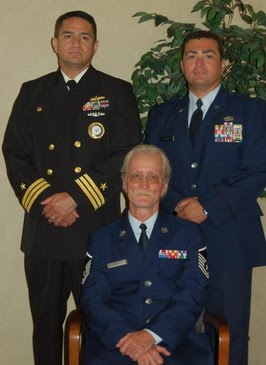An excerpt:
But cataclysmic changes were ahead, and their harbinger was President Jimmy Carter’s acquiescence in the 1978 Foreign Intelligence Surveillance Act (FISA). Here, for the first time, Congress and the courts undertook to regulate the gathering of national intelligence, particularly by electronic eavesdropping, against agents of hostile foreign powers. In the Nixonian afterclap, it was adjudged that the executive could not be trusted unilaterally to wield this power, which might secretly be used against political opponents.And this:
Of course, such wiretapping was already illegal, and the Nixon experience had amply demonstrated the political price to be paid for engaging in it. No matter. Henceforth, the executive branch would not be allowed to use whatever tactics it, as the branch with the most expertise and information, determined were necessary to protect the nation. Rather, it would be compelled to go to a federal FISA court newly created for the purpose, and, as with the procedure for criminal wiretaps, it would need to establish probable cause that the target was an agent of a foreign power. Electronic surveillance would be permitted only if the judges approved.
The impact on intelligence collection was serious. Previously, it would have been laughable to suggest that foreign enemy operatives had a right to conduct their perfidies in privacy—the Fourth Amendment prohibits only "unreasonable" searches, and there is nothing unreasonable about searching or recording people who threaten national security. (The federal courts have often recognized that the Constitution is not a suicide pact.) Now, such operatives became the beneficiaries of precisely such protection. Placing so severe a roadblock in the way of a crucial investigative technique necessarily meant both that the technique would be used less frequently (thereby reducing the quantity and quality of valuable intelligence) and that investigative resources would have to be diverted from intelligence-collection to the rigors of compliance with judicial procedures (which are cumbersome).
This was only the start of the debacle. Courts and the organized defense bar soon began to ply the FISA statute with hypothetical governmental abuses. What if, they worried, a national-security wiretap yielded evidence of an ordinary crime—not an unlikely event, given that terrorists tend to commit lots of ordinary crimes, including money laundering, identity fraud, etc. This was no problem under FISA as written: intelligence agents could simply pass the information to agents of the criminal law, who could then use the damning conversations in court. But what if such law-enforcement agents, for their part, were to try to use FISA as a pretext to investigate crimes for which they themselves lacked probable cause to secure a regular criminal wiretap?
In one sense, the suggestion was not out of line—wiretap conversations are devastating evidence, and defense lawyers routinely strain to have them suppressed. But the notion was logically absurd. If a criminal investigator was going to act corruptly, it would be far easier for him to fabricate evidence showing probable cause for a regular wiretap (by pretending, for example, to have an anonymous source who had bought illegal drugs from the target) than to trump up a national-security angle necessitating an additional set of internal approvals. Nor was there any indication that such chicanery was actually afoot. But reality is rarely an obstacle for those who see life as an ongoing law-school seminar. Gradually, courts rewrote FISA, grafting onto it a so-called "primary purpose" test requiring the government to establish not only probable cause that it was targeting operatives of a foreign power but also that its real reason for seeking surveillance was counterintelligence, not criminal prosecution.
In 1995, just before trying the blind sheik (Omar Abdel Rahman) and eleven others, I duly complied with discovery law by writing a letter to the defense counsel listing 200 names of people who might be alleged as unindicted co-conspirators—i.e., people who were on the government’s radar screen but whom there was insufficient evidence to charge. Six years later, my letter turned up as evidence in the trial of those who bombed our embassies in Africa. It seems that, within days of my having sent it, the letter had found its way to Sudan and was in the hands of bin Laden (who was on the list), having been fetched for him by an al-Qaeda operative who had gotten it from one of his associates.The conventional wisdom is our intelligence apparatus is broken. The truth is we probably don't know the half of it. Mr. McCarthy provides a brief history of, and the reasons behind, the decline of the U.S. intelligence community. He also offers opinions and specific recommendations about what can and should be done to fix it. An invaluable read.
An unintended consequence of reading this article was my increased appreciation for what the Bush Administration is doing to correct the deficiencies Mr. McCarthy describes. The flip side of that coin is the increase in the scorn and contempt I feel for those who actively undermine the President at every turn. Although I try to tell myself "reasonable people can disagree on these issues," I keep coming back to the conclusion that the President's detractors aren't reasonable people at all.
h/t: Neo-neocon. If you don't read this woman, you should begin today. Bookmark her.




.jpg)




No comments:
Post a Comment
Just be polite... that's all I ask.